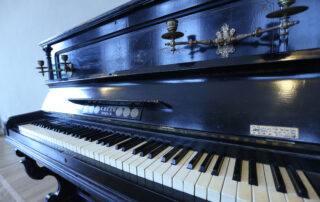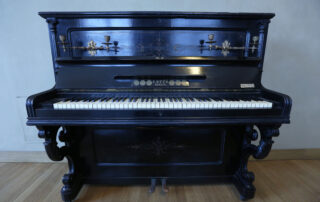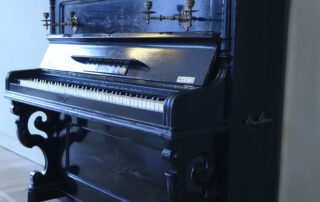Time sometime offers coincidences as unexpected as they are pleasant. This is the case of the 19th century upright Carol Otto Berlin piano, black and with candelabra, which was recently donated by the Lorandi-Cattaneo heirs to the Teatro Donizetti Foundation.
The instrument tells the story of Giulio Lorandi (1914 -1974), a composer, pianist and stage master from Bergamo who worked nationally and internationally.
It’s both curious and just a little poetic that the piano is located in the room dedicated to Bindo Missiroli, the theatre’s historic artistic director and friend of Lorandi’s, to whom he was attached by deep esteem.
In 1936, Missiroli himself commissioned Egle, which was composed by Lorandi himself, to be performed at the Donizetti. For the 22 year old, it was an auspicious start, given the direction of his opera by Adolfo Camozzo and the appreciation of the critic Franco Abbiati.
However, Egle was disliked by the Fascist censors and, in all probability, this led to his capture at the tender age of 23 and subsequent internment in Germany. Only because he was useful in entertaining the evenings of Nazi officials as a musician was Lorandi spared.
An extraordinary pianist able to read any score at first sight, and as skilled in jazz as classical music, Lorandi took up his calling once more after the war.
Playing in places like Bologna, the Arena di Verona, La Fenice di Venezia and La Scala, and receiving prizes in Ankara, his career abroad and in Italy was always accompanied by his presence at the Donizetti: ‘He is an irreplaceable stage director’, Adolfo Camozzo would say of him. ‘When Lorandi is there, I am perfectly at ease both with the repertoire and the premieres, even Wagner’s Il vascello fantasma was an exhilarating experience.’



